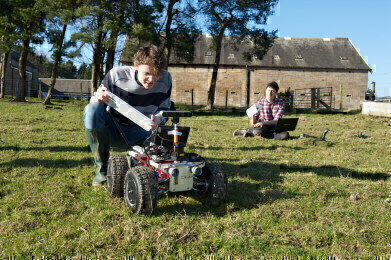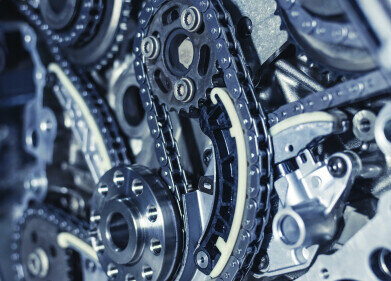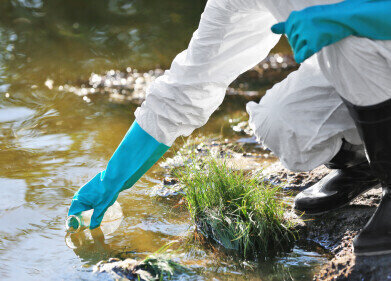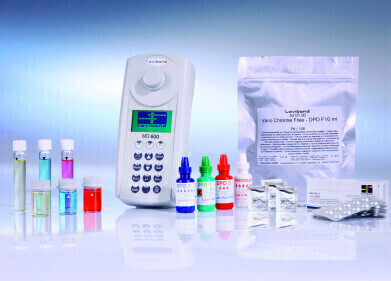Portable/Field Testing
Robotic Arm Technology to Help Reduce the Environmental Impact of Farming
May 16 2016
Robot technology designed for use on Mars could help improve crop yields on Earth.
A system developed originally to explore Mars has been transformed into an agricultural monitoring device for testing the quality of soil. It has the potential to reduce the environmental impact of farming.
The device consists of a mobile rover platform with a robotic arm which carries a soil sensing instrument. It is based on technology developed by STFC’s RAL Space (UK) and will be used in a new project being run by a team at the University of Strathclyde.
The Strathclyde researchers, working with partners in the UK and China, will demonstrate in trials, the feasibility of the device’s agricultural operation by using an integrated, force feedback-controlled robotic system on the ground during the project.
STFC’s RAL Space team has not only designed and built the robot platform for technology demonstration but it will also design and build the ‘Laser Induced Breakdown Spectroscopy (LIBS)’ instrument for soil quality characterisation. In addition the team will provide equipment and logistics support for the field trial in China that will demonstrate the technology. It is also working on aspects of the robot arm and navigation.
Aron Kisdi, a space systems engineer for RAL Space, said:
“With this novel instrument design we are tackling multiple challenges at once. First we have to miniaturise an instrument that is normally the size of a large wardrobe to fit on a small mobile robot so the measurements can be completed on-the-go. Second we are looking for nitrogen based fertiliser that can take multiple forms and is hard to measure accurately”.
He added: “At STFC RAL Space we have taken our existing expertise in developing and building space technology for NASA, ESA and other major science organisations and we will be applying it to this Earth bound project. It is a brilliant example of just how versatile our space technology can be and demonstrates once again that the UK is a world leader in these pioneering technologies.”
Professor Xiu Yan, of Strathclyde’s Space Mechatronic Systems Technology Laboratory (SMeSTech), in the Department of Design, Manufacture and Engineering Management, is the Principal Investigator in the research. He said:
This project is a combination of frontier research programmes in space robotic technologies. It focuses on a unique soil sensing technology, developed and built with UK capability; it’s also based on space instrumentation and the deployment of a UK-developed, intuitive master robotic control system.
“By harnessing space technology for a new application in farming, and engaging in this research collaboration with China, this project will deliver many benefits around the world.”
The project for the device, known as the AgriRover, is funded through the UK Space Agency’s International Partnerships Space Programme (IPSP).
Digital Edition
IET 34.2 March 2024
April 2024
Gas Detection - Biogas batch fermentation system for laboratory use with automatic gas analysis in real time Water/Wastewater - Upcycling sensors for sustainable nature management - Prist...
View all digital editions
Events
Apr 24 2024 Jakarta, Indonesia
Apr 24 2024 Sao Paulo, Brasil
Apr 30 2024 Melbourne, Australia
Apr 30 2024 Birmingham, UK
May 03 2024 Seoul, South Korea




-QED-Image.jpg)














